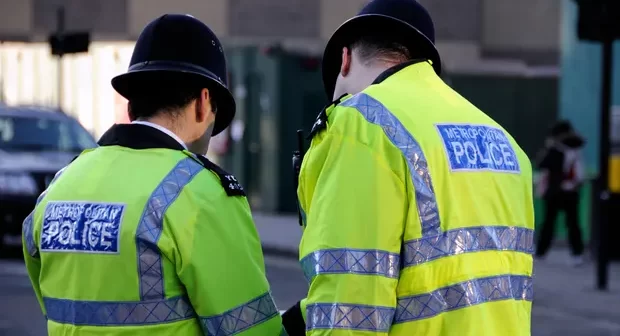Police chiefs have been issuing secret orders telling officers to inform bosses if they know any news reporters – as they would have to do with convicted criminals or extremists.
The measure is already in place in some forces, and follows guidance from the College of Policing, which sets standards in law enforcement. It is part of anti-corruption efforts and only came to light by accident.
The policing inspectorate is pressing the Metropolitan police, the country’s biggest force, to introduce the measure. The Society of Editors, representing newspapers, and specialist crime journalists in the Crime Reporters’ Association oppose the clampdown.
One leading freedom of speech group said it was more typical of “authoritarian regimes around the world rather than advanced democracies”.
There is concern that the order may put off officers wanting to whistleblow, or who do not trust their bosses to act on complaints of wrongdoing.
Ruth Smeeth, the chief executive of Index on Censorship, said “Index is increasingly concerned at the seemingly growing perception within the British police that journalists are seen as unsavoury or potentially disreputable individuals for officers to associate with.
“Freedom of the media is a bedrock of our democracy and the tendency to see reporters as a threat rather than an asset is something we are more used to seeing with our work in authoritarian regimes around the world rather than advanced democracies.”
Within policing, some senior figures were surprised at the measure and privately oppose it. The measure is understood to be under review, and policing already has rules in place for those who pass on information in return for bribes.
A spokesperson for the College of Policing said: “Journalists have an important role in holding police to account and supporting the service with news stories including appeals for information.
“There is a public expectation for the police to have policies in place to protect sensitive information held by the police, which can include details of members of the public and police operations. This includes a requirement to declare any potential conflicts of interest in order to be open and transparent, as well as mitigate any risks that may arise.
A spokesperson for Her Majesty’s Inspectorate of Constabulary and Fire and Rescue Services said: “We acknowledge the essential role journalists play in our democracy, including holding police forces to account. We make recommendations for police forces, taking into account relevant authorised professional practice where appropriate.”
The Society of Editors said: “The inclusion of journalists within a ‘notifiable associations’ list in counter-corruption guidance gives the wrongful impression that reporters seek to corrupt or deceive and equates the profession with the wrongdoing and dishonesty that journalists work to uncover. A successful working relationship between the police service and journalists is vital to policing legitimacy in the UK.”
Source: The Guardian

